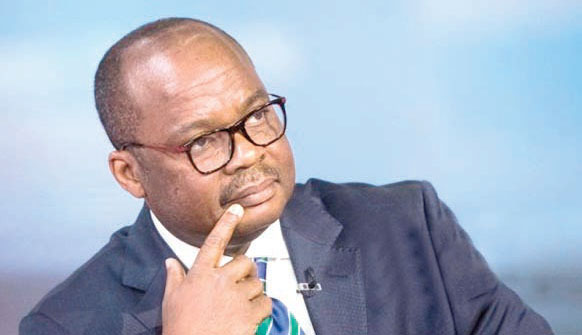The Monetary Policy Committee (MPC) of the Bank of Ghana has, once again, hiked the policy rate by 250 basis points, saying impacts from shocks experienced in the economy over the past few months still persist.
This effectively pushes the policy rate to 27 percent from the previous 24.5 percent – making it the fifth time this year that the rate has been hiked, and a cumulative 1,250 basis points in the same period.
Commenting on the rate increase after the MPC’s 109th meeting, the Central Bank Governor who doubles as Chairman of the Committee, Dr. Ernest Addison, said the increment in VAT rate as announced in the 2023 budget – together with already existing factors such as exchange rate volatility, among others – continues posing risk to inflationary pressures.
“The inflation forecast shows that inflation will likely peak in the first quarter of 2023 and settle at around 25 percent by end of 2023. This forecast is conditioned on the continued maintenance of a tight monetary policy stance and the deployment of tools to contain excess liquidity in the economy.
“There are however some risks to this forecast that will have to be monitored, including additional pressure from the proposed VAT increase and exchange rate pressure. Continued vigilance to the evolution of these potential price pressures in the outlook will be key.
“The Committee is of the view that significant upside risks to the inflation outlook remain. To continue anchoring inflation expectations, the Committee therefore decided to increase the policy rate by 250 basis points to 27 percent,” he said.
The Committee further defended its decision to always raise the policy rate as a tool for taming inflation – even though prices keep increasing – saying the bank’s policy response has yielded results by slowing the pace of inflation.
“On the transmission of monetary policy changes to inflation, the Committee was of the view that there is evidence the policy rate increases in the past few months have helped dampen the pace of monthly price increases. Between May and August 2022, the monthly inflation number eased from a peak of 5.1 percent to 1.9 percent.
“However, this was reversed in September and October on account of additional shocks from upward adjustment in ex-pump petroleum prices, utility tariff adjustments and transportation fare increases. In the event, inflation jumped during October 2022 to 40.4 percent and dragged core inflation along with it – which is almost at par with headline inflation and indicates significant underlying inflation pressures and upside risks to the inflation outlook,” the Committee’s statement read.
On cedi stability
The Governor said even though pressure on the cedi has eased a little, the Bank is yet to know what the pass-through effect of inflation will have on the cedi/dollar relationship.
“The foreign exchange market witnessed increased volatility with intense pressure on the local currency, especially in September and October. Factors such as tightening global financing conditions, the sovereign downgrades, the de facto exclusion from the international capital market, portfolio reversals, and increased demand for foreign exchange amid supply constraints, contributed to significant weakening of the Ghana cedi.
“More recently, the sharp depreciation episode has been driven by speculation of a possible debt restructuring that leads to portfolio rebalancing in favour of foreign currency holdings as against Ghana cedi-denominated assets. Looking ahead, the next few readings of inflation will shed light on the extent of pass-through for the accelerated Ghana cedi depreciation in October on inflation dynamics,” the statement noted.










